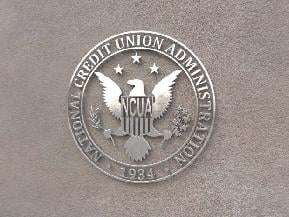SAN FRANCISCO – There is a place for BALANCE and it is with credit unions – at least that is what the “financial fitness” provider hopes. So far some 150 credit unions seem to agree. According to a recent survey by ComPsych Corp., an employee assistance work/life and crisis intervention services provider, employees can use some financial advice. Calls for financial help have risen 69% from 2002 to 2003, with the majority of calls related to debt, refinancing and failed investments. Surveyed employees generally reported poor financial health. When asked how they would describe their financial situation, 27% say they are one major setback away from financial disaster; 22% are worse off than last year, with less savings/income and more debt than before;23% are holding steady; 22% report that they are better off than last year, with more savings/income and less debt than before and only 6% claim to be in the best financial shape ever, with bountiful reserves and very little debt. Starting off as a department of the Consumer Credit Counseling Service of San Francisco in 1996, BALANCE was originally designed as an employee assistance program. The concept took off and CCCS later made BALANCE a separate subsidiary. “Our goal was to increase awareness that financial counseling was available and to connect with consumers before the financial crisis,” said BALANCE Vice President of Marketing/Business Development Jeannine Moore. “The idea then was that most people won’t come in for help until everything falls apart so as an employee benefit BALANCE would reach those people who were a little reluctant to use CCCS directly.” BALANCE President Joanne Budde says the financial education and counseling service later grew to help credit unions provide money management/housing counseling, credit report education and bankruptcy prevention programs to members. Here is how it works. Members call into BALANCE rather than the credit union for financial counseling. Manning the phones in San Francisco and 34 partner states are two teams- 15 INFOLINE counselors who provide the majority of services and 25 counselors who are also available to schedule hour-long in-person sessions. Counselors are required to complete 160 hours of training and become certified as credit counselors within one year of hire. Ongoing training for the entire staff is conducted monthly on topics ranging from student loan repayment regulations to techniques to manage a financial crisis. “The phone works because people really appreciate the privacy of the phone,” said Moore. “We also found that members are more comfortable not dealing directly with their financial institution because they are worried about the repercussions from the discussion. There is a loyalty factor with credit union members and they may be embarrassed about their financial problem and fear that they’ll have their credit shut down.” Financial education of course has been a rallying call for credit unions everywhere, and many have started their own programs. Moore said for those credit unions that already have established in-house financial education departments, BALANCE can provide additional support programs, particularly in cases where a debt repayment program is the best solution. “It is very labor intensive and can bog down the department,” said Moore. “With our CCCS roots we already have payment plans and arrangements in place.” Moore says credit unions are most surprised to learn how much financial counseling supports credit union long-term goals. Surveys of members reveals that of members who call BALANCE for counseling 40% purchased or refinanced a home; 49% significantly reduced their debt; 40% began or increased a savings or investment plan and 21% purchased, refinanced or leased an automobile. Of members who began a debt management program 72% significantly reduced their debt. Moore says another trend emerging is large credit unions sponsoring smaller sized credit unions so they too can provide BALANCE financial counseling/education services to their members. “The credit union sponsorships of smaller credit unions are vital because we don’t want BALANCE to be only for `rich’ credit unions but rather for every credit union,” said Moore. “The program is priced by the month, not by the call.” Credit unions can decide which aspects of the program will best suit members’ needs. According to Moore, some credit unions emphasize credit report education and others the debt repayment education. One of the most critical aspects of BALANCE is getting the word out to members. BALANCE works with the credit union’s marketing team to build awareness and track results. In addition, BALANCE provides on-site orientation training for employees and monthly reports which summarize individual calls and assistance provided to help credit unions monitor usage and target individuals for specialized programs. “We consider it a partnership. For this to work it really does take a commitment from both organizations,” said Moore. “Credit unions have to get the word out, otherwise the program won’t succeed. Most of the credit unions that sign up want to not only reduce losses but also use the program to help differentiate themselves from banks and develop stronger member relations with the counseling.” Credit union employees are also encouraged to do a mystery shop of BALANCE services and Moore says the first people to really use the BALANCE services are the CU staffers. While pre-purchase home counseling has recently gained popularity, Moore says money management/debt repayment and bankruptcy prevention still round out the top three BALANCE calls. [email protected]




 Copyright © 2024 ALM Global, LLC. All Rights Reserved.
Copyright © 2024 ALM Global, LLC. All Rights Reserved.










